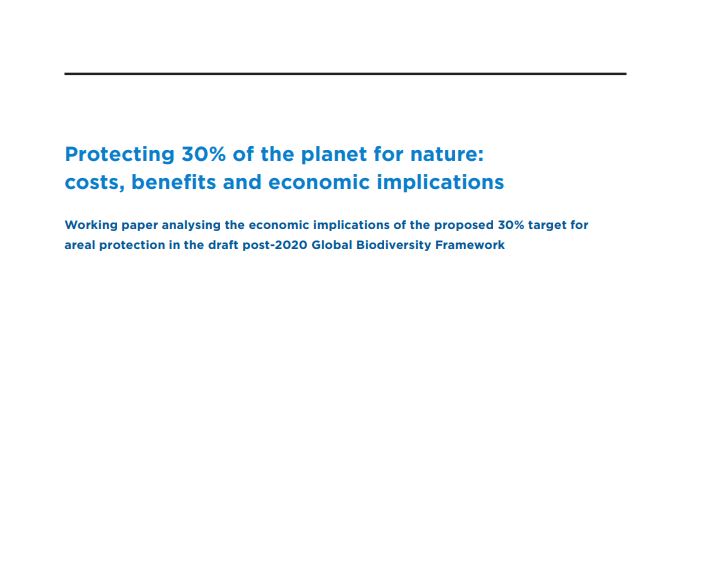Changing the rules of the game. Reforming targets, regulations and incentives to promote Nature Positive outcomes
Detalles
In the reflection paper Changing the rules of the game. Reforming targets, regulations and incentives to promote Nature Positive outcomes, its authors explore the role of policy and regulation in catalyzing corporate action on nature and creating an enabling environment to achieve the goals and targets of the Global Biodiversity Framework.
Based on this research, members of the EU's EU Horizon SUSTAIN project – which has received funding from the European Union's Horizon 2020 research and innovation programme under the grant agreement – conclude that policy reform is needed to align our governance systems with nature-positive thinking. This is essential to guide the contribution of companies to halt and reverse biodiversity loss. Many of our current rules and regulations are not capable of guiding our society towards actions with a positive impact on nature: at best, they operate within the paradigm of Do No Harm.
The paper collects good examples of policies focused on achieving a positive impact on nature and explores how existing policies and regulations can be reformed to better align them with this approach. In addition, they identify the principles that can guide the creation of an environment conducive to nature restoration.
Key findings and recommendations
- To achieve a positive impact on nature, it is necessary to eliminate or reform policies and incentives that are harmful to nature, and a paradigm shift from Do No Harm to "nature positive" is necessary, both in terms of political ambition and business action.
- The business and financial communities have demonstrated the validity of approaches that contribute to change towards a future with a positive impact on nature. Now, policymakers must break the stalemate of the Inaction Triangle to shape this future by changing the rules of the game and integrating the approach aimed at making a positive impact on nature into all policy objectives.
- The three key principles of this approach – Positive Outcomes, Going Further and Daring to Transform – should be used to assess existing policy instruments and be integrated into future policy development.
- A future with a positive impact on nature can only be achieved with a whole-of-government approach, which means that policies and instruments must be evaluated and reformed at all levels and in all policy areas.
- Policy instruments should be evaluated not only for their characteristics, but also for their specific properties (such as applicability, scope, and rigour) and for how they interact with other policy instruments.
- In addition to government, the financial sector is a key enabler of transformative change. By changing investments and risk management practices, financial organizations have the power to accelerate nature-positive impact outcomes.
Recursos relacionados

Challenges in the implementation of regenerative agriculture practices
This event highlights a crucial agricultural shift that aims to revolutionize the way we produce food while improving sustainability and…


